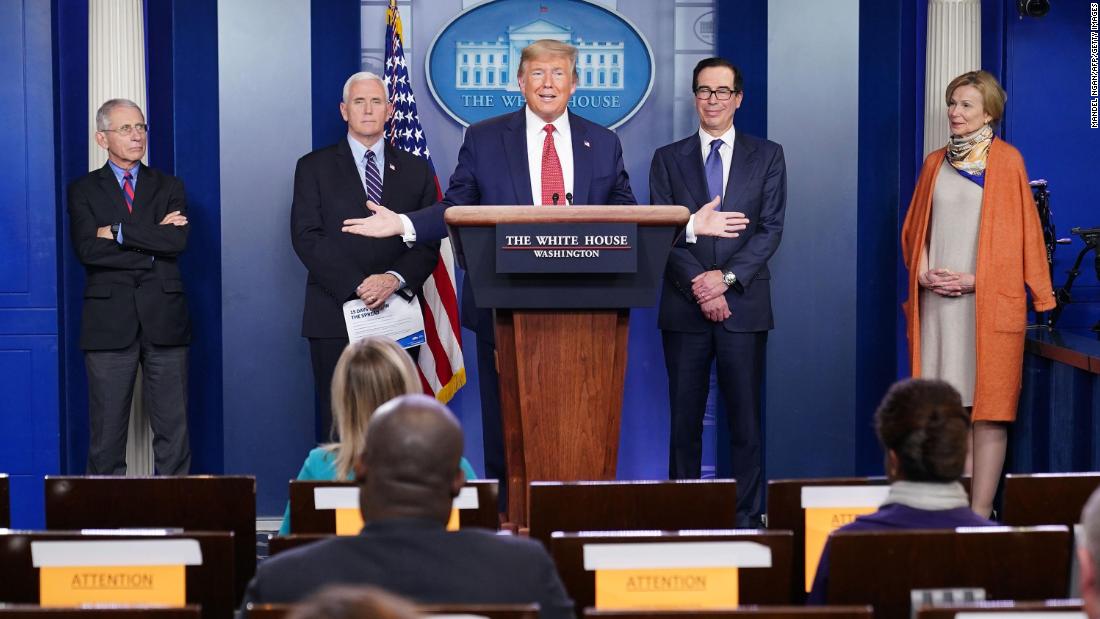“It was based on a certain level of weeks from the time we started and it happened to arrive, we were thinking of terms of sooner. I’d love to see it come sooner.”
Easter Sunday fell on April 12 this year.
TRUMP: And Bob, it’s so easily transmissible, you wouldn’t even believe it.
WOODWARD: I know, it’s —
TRUMP: I mean, you could, you could be in the room — I was in the White House a couple of days ago, meeting with 10 people in the Oval Office and a guy sneezed, innocently. Not a horrible —
WOODWARD: Yeah.
TRUMP: You know, just a sneeze, the entire room bailed out, OK? Including me, by the way.
So, here’s what we know:
- Trump told Woodward he purposely played down the severity of the virus to the public in mid-March.
- Five days later, Trump floated the idea of reopening the country on Easter Sunday, citing “a certain level of weeks from the time we started and it happened to arrive.”
- The day AFTER Trump’s proposed Easter reopening, from which he eventually backed down, Trump told Woodward how “easily transmissible” the virus was.
So, yeah.
This timeline is brutal for Trump. It makes clear that he knew, even as he was urging the country to reopen and for churches to be packed on Easter Sunday, that the virus was incredibly easy to pass from person to person.
For Trump to say that his entire strategy was to avoid panicking the public by “downplaying” the virus is bad enough.
But to actively encourage the reopening of the country when he knew that the virus was extremely contagious is, in a word, irresponsible. And in two words, dangerously irresponsible.
The first duty of every president is to keep the American people safe. It’s now clear that Trump’s desire to reopen the country superseded his mission to keep people safe.
In fact, Trump was publicly encouraging a return to normal even as he was privately telling Woodward that Covid-19 was incredibly infectious.
It’s damning stuff.
CNN’s Allison Gordon contributed to this analysis.

